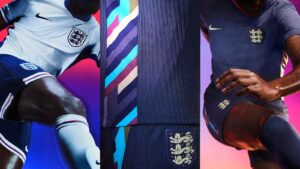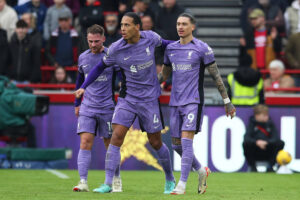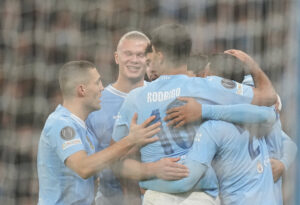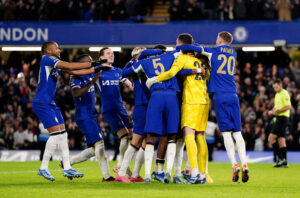For the past 25 years, the European Cup has featured a group stage, gradually evolving from merely a knockout tournament into the competition we know today. The best players on the planet compete to be Europe’s best every single season, but it hasn’t always been like that. Up until 1997, the only way to have a crack at winning the trophy nicknamed “Old Big Ears” was to win the league title. As a result, some of the greatest ever players missed out on winning club football’s greatest trophy, becoming Champions League non-winners.
In some cases, the main reason for this is that they did not compete for it every season, like they most likely would if playing today. This reasoning does not apply to all of the players referred to in the two parts of this article. Some of them have played Champions League football regularly, but a winners’ medal has still evaded them. Whatever the reason, there is no doubt that all of these players were among the best on the planet in their day, and would have been an asset to any squad in the world.
Part one features the players whose prominent years were during the 1990’s. It is quite frightening to imagine the transfer fees they would command if they were playing at their peak in today’s game.
Romário
The man who almost singlehandedly dragged Brazil to the 1994 World Cup Final almost made it a double that year. Unfortunately for Romário, his Barcelona side were crushed 4-0 by AC Milan in the Champions League final in Athens. That was the closest the Brazilian super striker ever came, despite playing in the competition for several years with PSV Eindhoven prior to moving to the Nou Camp. In 1995 he moved back to his homeland, consigning himself to the list of Champions League non-winners.
Lothar Matthäus
A man who played at the top level of world football for two decades, and quite literally won everything the game had to offer, at both club and International level; all except the Champions League of course. Matthäus experienced two very similar heartbreaks in the final of this competition, both of them with Bayern Munich. In 1987, Porto scored two quick goals in the last ten minutes to claim the trophy. The same thing happened in 1999, only Manchester United did it in injury time.
During his career with Inter Milan, Bayern and Germany, he won the Bundesliga, Serie A, the UEFA Cup, the Ballon d’Or, the European Championship and the World Cup. When he called time on his career in 2000, there was just one medal missing. Ironically, Bayern won the trophy the following year.
Alan Shearer
When Shearer left Blackburn Rovers in 1996, he could have had his pick of any club in Europe. He famously snubbed Manchester United, and made a world record £15 million transfer to his hometown club Newcastle United. Although he did play in the Champions League with both Blackburn and Newcastle, neither club ever got out of the group stages. Given that nobody has come close to overtaking his record of 260 Premier League goals, there is a sense that Shearer could have achieved so much more.
George Weah
A powerhouse of a forward whose form for Paris Saint-Germain in the 1994-95 Champions League earned him the Ballon d’Or, and a transfer to AC Milan. Although Weah was an instant hit at the San Siro, he walked into a team that were a shadow of the side which had dominated Europe in the early part of the decade. Despite winning two Serie A titles, Milan never got out of the Champions League group stages during his time at the club. It leaves a feeling that Weah was the right player at the wrong time for Milan.
Roberto Baggio
The “Divine Ponytail” was, without doubt, one of the best players of the 1990’s, and one of Italy’s all-time greats. Despite playing for both Milan clubs and Juventus, he never came close to winning the trophy. He left the latter in 1995, twelve months before they won the trophy but he never got further than the quarter-final, with Inter in 1998-99. The only European trophy Baggio got his hands on was the 1993 UEFA Cup – coincidentally the same year he won the Ballon d’Or.
Jean-Pierre Papin
One of the deadliest strikers of the late 1980’s and early 1990’s, few have come as close to Champions League success, without actually lifting the trophy, as Jean Pierre Papin. He scored in the penalty shootout in the 1991 final, which his Marseille side lost to Red Star Belgrade. Marseille did win the trophy two years later beating AC Milan, who Papin played for by this time. The following year saw Milan recapture the trophy, but restricted by UEFA’s three foreigner rule, Papin was left out of the squad. Another player who lifted the Ballon d’Or, in 1991, but not the European Cup.
Eric Cantona
The French maverick was without doubt the catalyst for most of Manchester United’s success in the 1990’s. He had previous European Cup experience with Marseille and Leeds United, and it was expected that this would help the Red Devils. Despite winning four Premier League titles and two F.A. Cups at Old Trafford, European success never materialised. United were eliminated in the early stages during their first two attempts, during the second of which Cantona was serving a four match ban. The closest he came was in 1996-97, when United lost in the semi-finals to eventual winners Borussia Dortmund. Cantona retired soon afterwards, but never got to lift the famous trophy.
Jürgen Klinsmann
A player who thrilled the fans wherever he went, Klinsmann won everything at International level. By contrast, his trophy haul at club level seems rather light, having won just one Bundesliga title and two UEFA Cups. His career took him to clubs such as Bayern Munich, Inter and Monaco, and a semi-final appearance with the latter in 1993-94 is the closest he came to winning the Champions League.
Laurent Blanc
Despite being one of the greatest defenders of the 1990’s, Blanc didn’t play in Europe’s top competition until the latter stages of his career. There is, in fact, a strange pattern showing that he helped several clubs qualify for the Champions League, and then left them. In 1996 he won the French league and cup double with Auxerre, before transferring to Barcelona. The Nou Camp side finished second, and by 1997 this was enough to qualify, but left after one season to join Marseille. He spent two seasons at the Velodrome, and in his final one they also qualified. Blanc then moved to Inter, finally playing Champions League football, but only as far as the qualifying round.
It wasn’t until he moved to Manchester United in 2001 that he played in the competition properly. United came within a whisker of reaching the final, losing to Bayer Leverkusen on away goals. This was the closest he came to Champions League glory, despite winning both the World Cup and European Championship with France.
Gabriel Batistuta
During the 1990’s there were few strikers on the planet as deadly as Gabriel Batistuta. Given that Fiorentina were rarely title contenders during this period, it is amazing that they managed to hold on to the Argentine striker as long as they did. He even stayed with them after they were relegated to Serie B, and led them back into the top flight at the first attempt. Every summer he was linked with moves to some of Europe’s biggest clubs, but he remained loyal.
After just one Coppa Italia and one Champions League campaign in nine years to show for his efforts, he joined Roma in 2000. The result was that he won his only Serie A title, and helped his new club to Champions League quarter-finals the following season. This was as close as “Batigol” came to the trophy, despite a brief spell with Inter later in his career. His loyalty to Fiorentina is probably the main reason he joins the list of Champions League non-winners.
Greatest Champions League Non-winners: The 1990’s
The 1990’s were a great decade for football, as the list of players above shows. Had these immensely talented footballers played in today’s game, it is hard to imagine that all of them would be on this list. The clubs they played for were usually placed in league positions that today would see them compete for club football’s greatest trophy. Unfortunately, as the format was different back then, all these players became Champions League non-winners.
Main Photo






